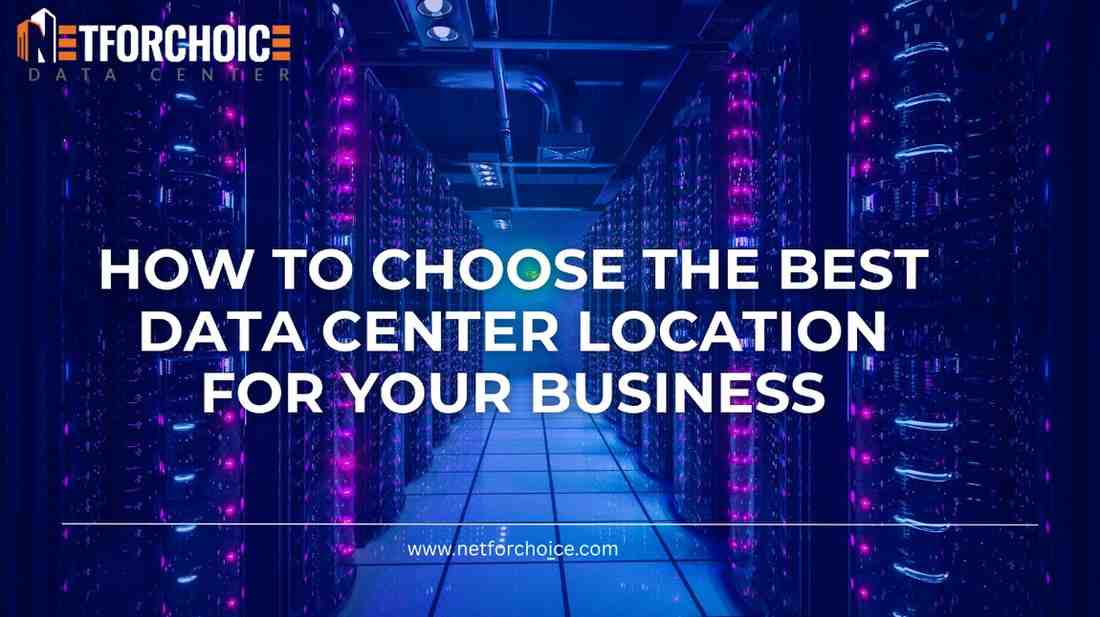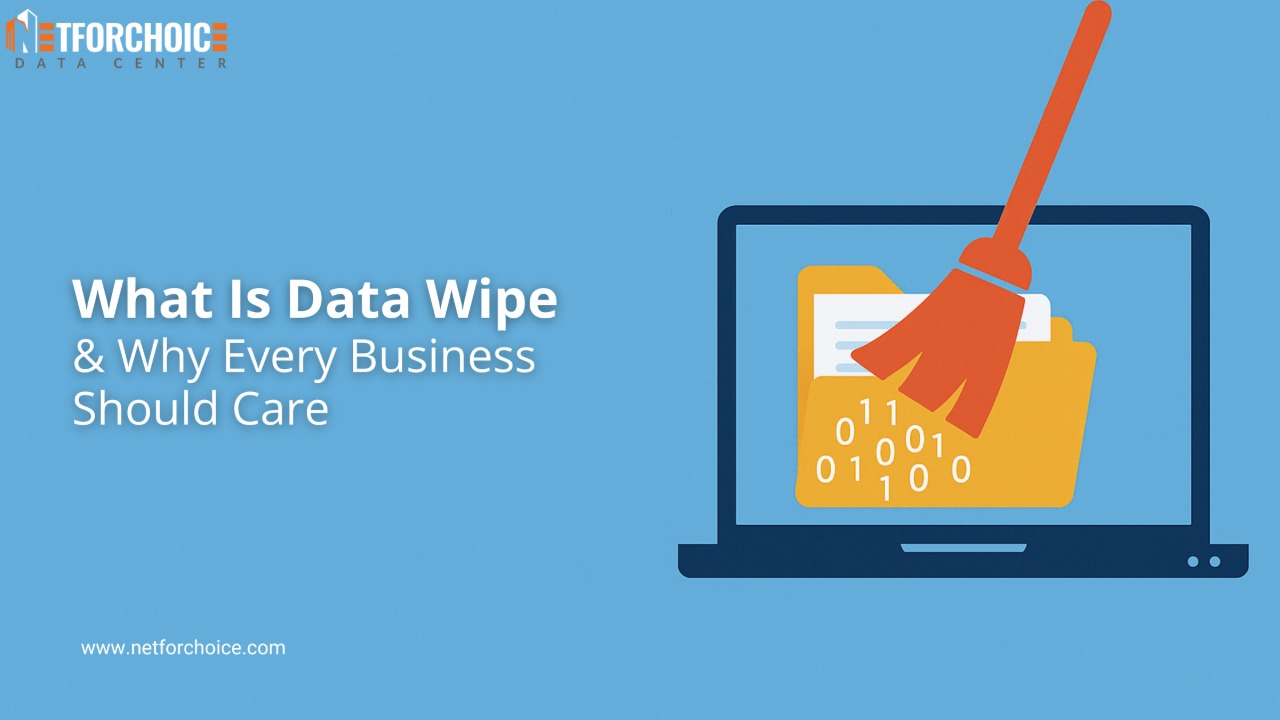How to Choose the Best Data Center Location for Your Business

If you’re building a new data center or expanding an existing one, one of the most important choices you’ll have to make is where to put it. The location of your data center will affect everything from how well it works and how long it stays up to how much it costs and how well it follows the rules. In today’s digital world, businesses need to make sure that their data centers are in the right places to get the best performance and the least amount of risk.
In this blog, we’ll talk about what to think about when choosing a location for a data center and how businesses can do well by making the right choice. By the end, you’ll know how to choose a data center location and why it’s so important for your business.
Why is the location of the data center important?
It’s important to understand why location is so important before talking about the things that affect the choice of data center site. The location of your data center can have a direct effect on:
Uptime and dependability: The location of a data center affects how well it can handle things like natural disasters, bad weather, or political unrest.
Performance and delay: If you are close to your users or clients, you may be able to access data faster and with fewer delays.
Cost-effectiveness: Data centers have to pay for things like land, labor, and energy. These costs could be lower if you choose the right place.
Safety and security: There are strict rules in place for each industry about how to store data, keep it private, and keep it safe. It is very important to pick a website that follows these rules.
- Risks to the environment and geography
One of the first things to think about is how likely it is that a data center will be hit by a natural disaster. Your infrastructure could be in a lot of danger if it is in an area that is prone to earthquakes, floods, or hurricanes.
For example, coastal areas may be more likely to flood, while areas that are prone to earthquakes may lose a lot of data and have problems.
Pick a place for your data center that is both geographically stable and far away from other important infrastructure to lower these risks. This makes sure that an event in one place won’t affect
- The closeness of your customers
Companies that wish to provide quick access to data must be near their end users. By choosing a data center location close to your primary client, you can reduce delay and speed up service delivery.
Consider placing your data center near major cities or IT hubs to ensure your clients have fast access times. To create a distributed network for worldwide services, this can entail choosing multiple data center locations in various regions.
- Power Availability and Energy Costs
Power availability is an important factor when deciding where to locate a data center. Data centers consume huge quantities of electricity to keep servers running, cool systems, and ensure smooth operations. Without a dependable and reasonably priced power source, the cost of running a data center can rise quickly.
Seek out areas with affordable electricity costs, dependable grids, and renewable energy sources. In certain places, using renewable energy may also result in tax breaks, which can lower operating expenses. The choice of data center location to reduce carbon emissions and optimize savings may be influenced by energy rates and availability.
- Connectivity and Network Infrastructure
Another crucial factor to take into account when choosing a data center location is access to network connectivity. A data center will have better capacity and faster data transfer rates if it is connected to multiple fiber optic networks.
In regions with strong communication networks, delays, performance, and reliability can all be enhanced. Additionally, providing a range of internet exchange points (IXPs) to your clients can increase security and speed up data transfers.
- Requirements for Law and Regulation
Different countries and regions have different laws and regulations pertaining to data protection and storage. Businesses that have to conform to industry-specific regulations must choose the best location for their data centers.
You must consider your legal requirements when deciding where to locate your data center. The location should be in an area with favorable data protection regulations and where your business can meet all legal requirements.
- Cost and Tax Factors
Land, labor, tax, and operating cost variations by region are significant. Selecting sites with lower operating costs—such as those with less expensive labor and land—can reduce the overall cost of running a data center.
Furthermore, certain regions could provide tax breaks or subsidies to attract companies, particularly for data centers that use less energy or are environmentally friendly. Remember that even if the initial cost may be lower in some places, there may be additional hidden charges, such as energy or transportation. You can make an informed choice by weighing the advantages and disadvantages of each place.
- Management of Risk and Security
Physical infrastructure and cybersecurity are two important aspects of data center management. Your data center must be located in a secure place, away from political or social unrest, in order to maintain smooth operations.
Additionally, the location’s security infrastructure must be sufficiently strong to protect your data from external threats. A smart data center will use multi-layered security measures like cybersecurity, biometric access control, and surveillance to prevent data breaches and hacking attacks.
NetForChoice Data Center Location
NetForChoice operates modern data centers designed to provide your business with optimal speed, security, and scalability. Our data centers are located in strategic locations across India and beyond, ensuring excellent uptime, modern security, and compliance with industry standards.
What Makes NetForChoice Data Centers the Best Option?
Geographically Diverse Locations: We have data centers in key cities and regions that ensure minimal latency and excellent performance for global operations.
Energy-Efficient Operations: Our data centers use renewable energy sources and energy-efficient technologies to minimize their environmental impact and keep operating costs low.
Powerful Security Measures: Both digital and physical security procedures are in place to protect your data from events and assaults.
Compliance and Reliability: Our data centers follow industry-leading standards and rules, including ISO 27001, to ensure that your data is secure and complies with legal requirements.
In conclusion, choosing the ideal site for a data center is a challenging but crucial decision for any business. By considering all of these aspects and using reliable data center services like those offered by NetForChoice, you can ensure that your operations are efficient, secure, and future-ready.
FAQs Regarding Data Center Location Selection
- Where would be the ideal location for a data center for my company?
The ideal site for your data center depends on a number of factors, including local laws, connectivity, power availability, and the distance to your clients. The secret is a well-thought-out plan that considers cost, performance, and risk management.
- How does geographic location affect speed?
Geographical location has a direct effect on speed. The more distance your users are from the data center, the faster the data transfer will be. To minimize delay, it is often recommended to place data centers in multiple locations or near major cities.
- When choosing a location for my data center, should I consider energy efficiency?
Yes, energy efficiency is necessary to reduce operating costs. The ideal locations have access to renewable energy sources and dependable power grids. Energy-efficient cooling systems for data centers will also reduce operational expenses and their environmental effect.
- How do regulations affect the choice of data center locations?
Regulations are a major consideration when choosing a data center location. Countries and regions have different laws related to privacy, data security, and storage. Make sure that your data center’s location complies with industry-specific regulations like SOC 2, GDPR, or HIPAA.




